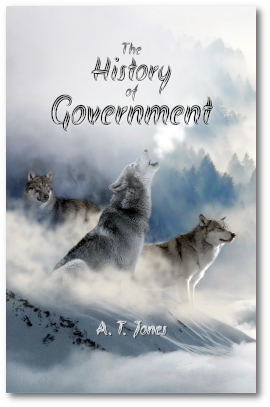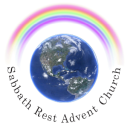1. From the darkness of the ages, light and life were stirred awake;
As their purity unfolded, church and state began to quake.
From oppression’s tyrant power, conscience struggled to be free;
For the Bible’s living power brought the dawn of liberty.
2. Then the bloody law enacted threaten’d to consume the free,
Who would stand for God’s true service and depart from man’s decree.
Pope and prelate, priest and people, like a flood upon the just,
Made them flee into the new world, there to serve the God they trust.
3. These were salt: the world’s preservers; who had learned self-government;
Built upon this strong foundation came a new experiment.
Two strong pillars were erected for religious liberty:
Conscience freedom (toleration), government by people free.
4. So this land became a haven, and it prospered and increas’d;
But with passing generations this great reformation ceased.
When the church is not progressing then she loses all her pow’r,
When the salt has lost its savor it is fit for salt no more.
5. But eternal rights of conscience never can be wholly lost,
While the Lord still has His servants, who will serve at any cost.
Bless the Lord who gave our fathers peace upon a foreign shore;
Unto Him who gave soul-freedom: praise and thanks forevermore.
Playback
Instrumental – Sampled Sounds
Download
| MP3 – Instrumental | PNG | |
| MIDI | XML | EPS |
| TXT | SIB7 / SIB3 | SVG |
 This song draws it’s inspiration from chapter 16 of the book The Great Controversy, entitled The Pilgrim Fathers. This chapter covers the founding of America, the spiritual reasons that led many to come there, and the eventual establishment of religious liberty: a government without a king, a church without a pope.
This song draws it’s inspiration from chapter 16 of the book The Great Controversy, entitled The Pilgrim Fathers. This chapter covers the founding of America, the spiritual reasons that led many to come there, and the eventual establishment of religious liberty: a government without a king, a church without a pope.
At the end of the chapter, a warning is given that liberty is only preserved by people who can govern themselves. This ability of self-government depends on a pure faith and separation from idolatry, for only God can truly give the power needed to control the human nature. By compromise and devotion to the things of this world, the churches of America are now being corrupted. The high price paid for liberty has not been taken advantage of, and the gift will soon be lost by those who do not cherish and nurture it.
Nevertheless, the purpose of God in providing a refuge for His persecuted people, will be appreciated by some. God will always have His few that “have not bowed the knee to Baal.”
This song is dedicated to Roger Williams, one of the first, and still one of the best Christians ever to colonize the New World. He was one of the few settlers who was merciful and kind to the Indians, and recognized their prior claim to the land. So when he established the colony of Rhode Island, he purchased the land from them. He also learned their habits, customs and language, and published the book A Key into the Language of America, to help Europeans learn to communicate with the Indians. By peaceful diplomacy he settled many disputes between the Indians and the settlers, which caused the Indians to affectionately name him “Dove of Peace” and “Quencher of Fires”.
Roger Williams was the first Puritan to really grasp religious liberty, and coined the term “soul liberty” to describe the freedom that God gave to man to choose whether he would serve Him or not, and how. When religion was forced on people, he insisted that it only produced either hypocrites or persecution (and usually both). But when he taught these ideas, he was considered a heretic, and dangerous man. The authorities in Boston wanted to deport him to England, but he escaped in the middle of winter and found shelter with the Indians.
He finally settled in Providence, and all those of non-conformist religious views, who were not welcome in the other colonies, came to his. The other colonies derided Providence as the “cesspool of New England,” and predicted that it would break down into chaos, but it thrived. Roger Williams insisted that the civil government had to do with civil matters only, and that as long as the settlers obeyed the civil laws, they were free to practice their religion as they chose. This “lively experiment,” as he called it, worked.
Williams was the first to use the phrase “wall of separation” to describe the relationship of the church and state. He called for a high wall of separation between the “Garden of Christ” and the “Wilderness of the World.” After his death, he was almost forgotten, but one hundred years later, the principles he stood for became incorporated into the constitution of the United States of America, and were one of the secret causes of her early prosperity.
 This short treatise looks at the topic of Political Science from a Christian perspective. A. T. Jones draws on his wealth of knowledge of history to show why it is that nations decayed and fell; why their governments became weak and could not hold the society together anymore.
This short treatise looks at the topic of Political Science from a Christian perspective. A. T. Jones draws on his wealth of knowledge of history to show why it is that nations decayed and fell; why their governments became weak and could not hold the society together anymore.
He deals with the Biblical principle that “righteousness exalts a nation” (Proverbs 14:34), and shows that self-government (also known as self-control, or temperance) lies at the foundation of the strength of a nation. If the citizens have self-government, then their national government will be strong.
Since it is only the gospel of Jesus Christ that can give man back his dignity and self-control, then true religion has much to do with the stability of nations.
Jones also deals with the Roman republic and the causes of its decay, and parallels this with the similar path pursued by the nations of today, especially America, the nation above all others that stood for the principle of self-government.
This is a very important book for the times that we live in.
Tags: Religious Liberty



Working AS LOCAL CHURCH DIRECTOR SDA RELIGIOUS LIBERTY